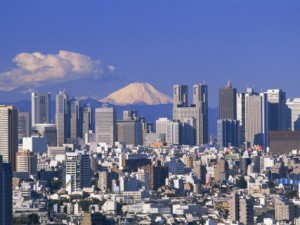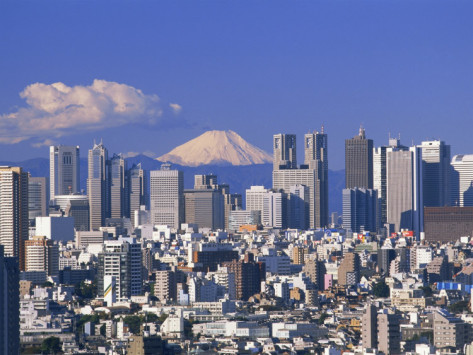After a shocking decline in the value of the yen, Japan estimates that its economy will grow by 4.1 percent during the next year. With the value of $1 USD increasing from 80 yen to almost 100 yen in just over five months, the Japanese government’s economic estimates were previously a picture of relative doom and gloom.
decline in the value of the yen, Japan estimates that its economy will grow by 4.1 percent during the next year. With the value of $1 USD increasing from 80 yen to almost 100 yen in just over five months, the Japanese government’s economic estimates were previously a picture of relative doom and gloom.
However, the East Asian economic hub has reported that growth throughout the remainder of 2013 could be stronger than expected. Despite reports of its service-oriented economic being in a state of free-fall, recent quarterly growth figures are indicating that Japan’s economy is on an upward slope.
The Japanese yen, Japan’s domestic currency and one of the world’s largest Asian currencies, is down 25 percent compared to its position against the USD over six months ago. The previously strong yen was thought to be a primary cause of the East Asian economic powerhouse’s slow export sector and lagging corporations.
Numerous Japanese technology firms, including consumer electronics powerhouse Sony and home gaming firm Nintendo, reported that their profits were dropping due to the overly strong yen last year. Both companies, as well as many of Japan’s other consumer-focused export firms, can now enjoy a far healthier export sector.
Shinzo Abe, Japan’s Prime Minister, has taken a proactive role in improving Japan’s economic health using his ‘Abenomics’ economic planning system. Japan’s economy has suffered since the early 1990s, when the country’s high-growth ‘bubble period’ caused severe economic damage to many of Japan’s largest corporations.
The country has suffered from deflation and sluggish employment figures for the past two decades, as failed recovery efforts produced a ‘lost decade’ for Japanese companies during the 1990s. With its currency adjusted and its economy gaining groups, however, Japan could re-emerge as a leading East Asian economy.





